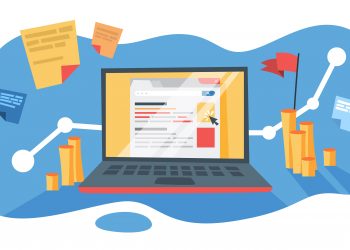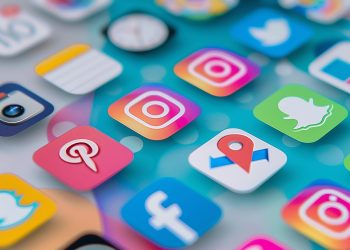AI Marketing – In the rapidly evolving landscape of marketing, staying ahead of the curve is crucial for success. One of the most transformative developments in recent years is the integration of artificial intelligence (AI) into marketing strategies. AI not only streamlines processes but also enhances personalization, targeting, and customer engagement. In this article, we’ll explore how AI is revolutionizing marketing and how you can harness its power to drive your strategy forward.
The Rise of AI in Marketing
Artificial intelligence has made substantial inroads into various industries, and marketing is no exception. With the vast amount of data generated daily, AI has become an invaluable tool for marketers to make sense of this information and make data-driven decisions. Here are some key areas where AI is making its mark in marketing:
1. Personalized Content Recommendations
AI-driven algorithms analyze user behavior, preferences, and historical data to deliver personalized content recommendations. Whether it’s suggesting products, articles, or videos, AI ensures that your audience receives content tailored to their interests, increasing engagement and conversion rates.
2. Predictive Analytics
AI can predict future trends and customer behavior based on historical data. Marketers can use these insights to anticipate market shifts and adjust their strategies accordingly, ensuring they stay ahead of the competition.
3. Chatbots and Customer Service
Chatbots powered by AI provide instant responses to customer inquiries, offering 24/7 support. They can answer frequently asked questions, guide users through purchasing decisions, and provide a seamless customer experience.
4. Email Marketing Optimization
AI can analyze email marketing campaigns to determine the best times to send emails, subject lines that resonate, and content that drives engagement. This leads to higher open and click-through rates, ultimately boosting conversions.
5. Enhanced Advertising
AI algorithms can optimize ad targeting by analyzing user data and behavior. This ensures that your ads are shown to the most relevant audiences, maximizing the return on investment (ROI) for your advertising campaigns.
6. Content Generation
AI-driven content generation tools can produce articles, reports, and product descriptions, saving time and effort for marketers. While these tools can be a valuable resource, human oversight is essential to ensure content quality.
Implementing AI in Your Marketing Strategy
Now that we’ve discussed how AI is transforming marketing let’s explore how you can harness its power in your own strategy:
1. Data Collection and Analysis
Start by collecting and organizing your data. AI requires a robust dataset to work effectively. Analyze this data to gain insights into customer behavior, preferences, and trends. Tools like Google Analytics and customer relationship management (CRM) software can be invaluable in this process.
2. Select the Right AI Tools
There are numerous AI tools and platforms available, each with its strengths and use cases. Consider your specific marketing goals and needs when selecting AI tools. Whether it’s chatbots, predictive analytics, or content generation, choose tools that align with your strategy.
3. Personalization is Key
AI’s ability to deliver personalized content is one of its most potent features. Leverage this by tailoring your marketing messages to individual customer preferences. Use AI to segment your audience and deliver content that speaks directly to their needs and interests.
4. Experiment and Optimize
Implementing AI in your marketing strategy is an ongoing process. Continuously experiment with different AI-driven approaches and assess their impact on your KPIs. Use A/B testing to refine your strategies and optimize your campaigns for better results.
5. Human Oversight and Creativity
While AI can automate many tasks, it’s essential to maintain a human touch in your marketing efforts. Creativity, empathy, and a deep understanding of your audience are qualities that AI can’t replicate. Combine the strengths of AI with human expertise to achieve the best results.
Conclusion
Artificial intelligence is revolutionizing marketing by enhancing personalization, improving data analysis, and automating repetitive tasks. To stay competitive in the ever-changing marketing landscape, it’s crucial to harness the power of AI in your strategy. By collecting and analyzing data, selecting the right AI tools, personalizing content, experimenting, and maintaining a human touch, you can unlock the full potential of AI in your marketing efforts. Embrace this technology, and you’ll be well on your way









